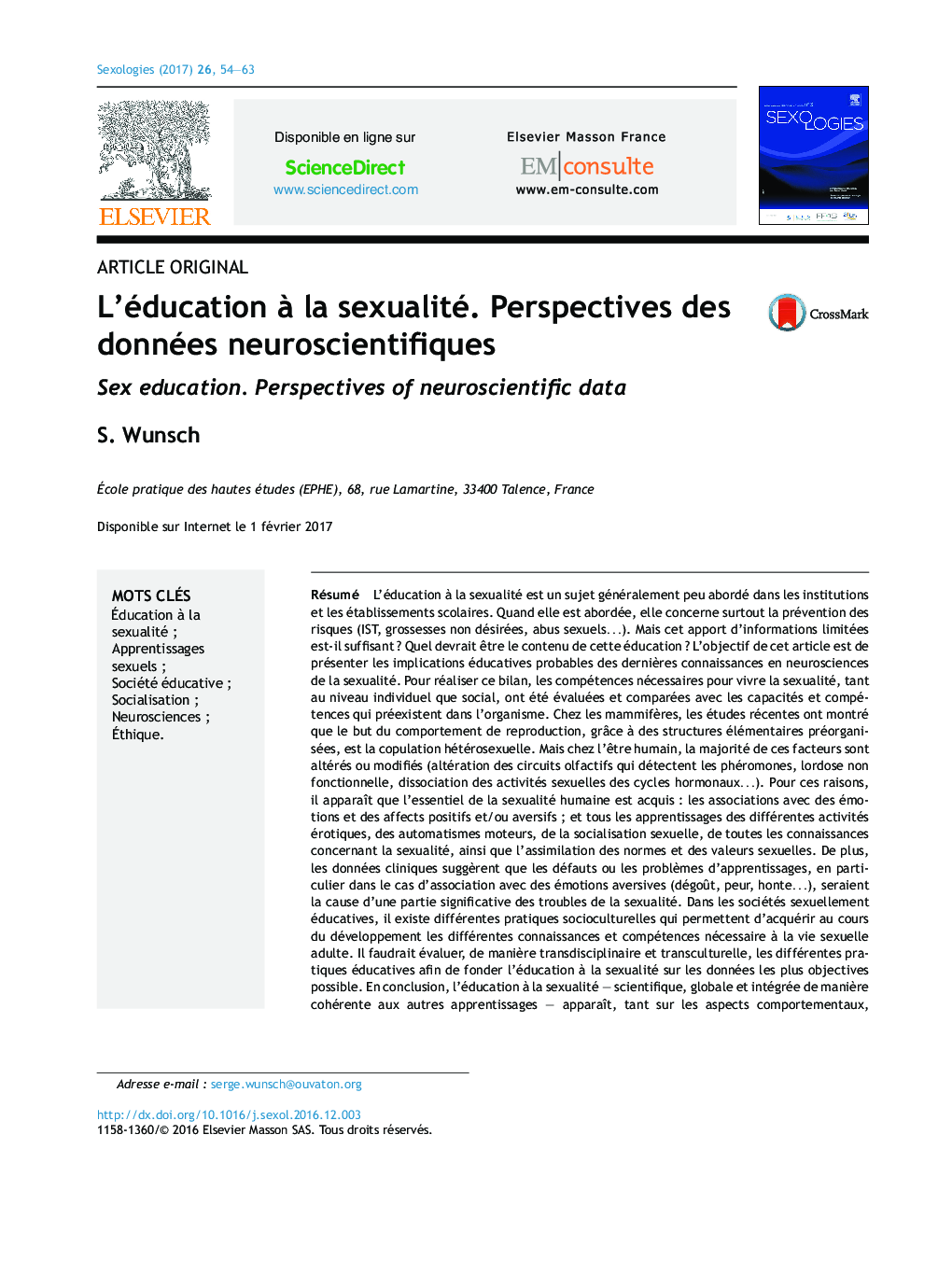| کد مقاله | کد نشریه | سال انتشار | مقاله انگلیسی | نسخه تمام متن |
|---|---|---|---|---|
| 4935585 | 1363539 | 2017 | 10 صفحه PDF | دانلود رایگان |
عنوان انگلیسی مقاله ISI
L'éducation à la sexualité. Perspectives des données neuroscientifiques
دانلود مقاله + سفارش ترجمه
دانلود مقاله ISI انگلیسی
رایگان برای ایرانیان
کلمات کلیدی
موضوعات مرتبط
علوم پزشکی و سلامت
پزشکی و دندانپزشکی
زنان، زایمان و بهداشت زنان
پیش نمایش صفحه اول مقاله

چکیده انگلیسی
Sex education is a subject that is generally not covered very much in schools and educational institutions. When it is, it mainly concerns risk prevention (STDs, unwanted pregnancies, sex abuse, etc.). But is this limited amount of information sufficient? What else should sex education include? The aim of this article is to present the probable educational implications of the latest findings in neuroscientific sexuality. To prepare this report, the necessary competencies to experience one's sexuality, both individually and socially, have been assessed and compared with the capacities and competencies that exist naturally in the body. In mammals, recent studies have shown that the objective of reproductive behavior, thanks to pre-organized elementary structures, is heterosexual copulation. But in the human being, most of these factors are impaired or modified (impairment of the olfactory circuits to detect pheromones, lordotic mating reflex no longer functional, sexual activities dissociated from hormonal cycles, etc.). For these reasons, it would appear that the essentials of human sexuality have to be acquired: associations with emotions and positive and/or negative affects; and all the learnings of various erotic activities, motor automatisms, sexual socialization, all the knowledge concerning sexuality, and the assimilation of sexual norms and values. In addition, clinical data suggest that failings or problems with the learning, in particular in the case of association with aversive emotions (disgust, fear, shame, etc.) could be the cause of a significant proportion of sexual disorders. In societies where sexual education exists, there are various sociocultural practices that enable the acquisition of different items of knowledge and the competencies necessary for adult sexuality, at the various stages of development of a human being. The different educational practices should be assessed in a transdisciplinary and transcultural manner so as to base sex education on the most objective data possible. To conclude, sex education - scientific, global and integrated in a consistent manner to all the other forms of learning - would appear, both in terms of its behavioral and cognitive aspects, to be essential for sexual health and an appropriate, conscious and responsible sexual and social life.
ناشر
Database: Elsevier - ScienceDirect (ساینس دایرکت)
Journal: Sexologies - Volume 26, Issue 1, JanuaryâMarch 2017, Pages 54-63
Journal: Sexologies - Volume 26, Issue 1, JanuaryâMarch 2017, Pages 54-63
نویسندگان
S. Wunsch,